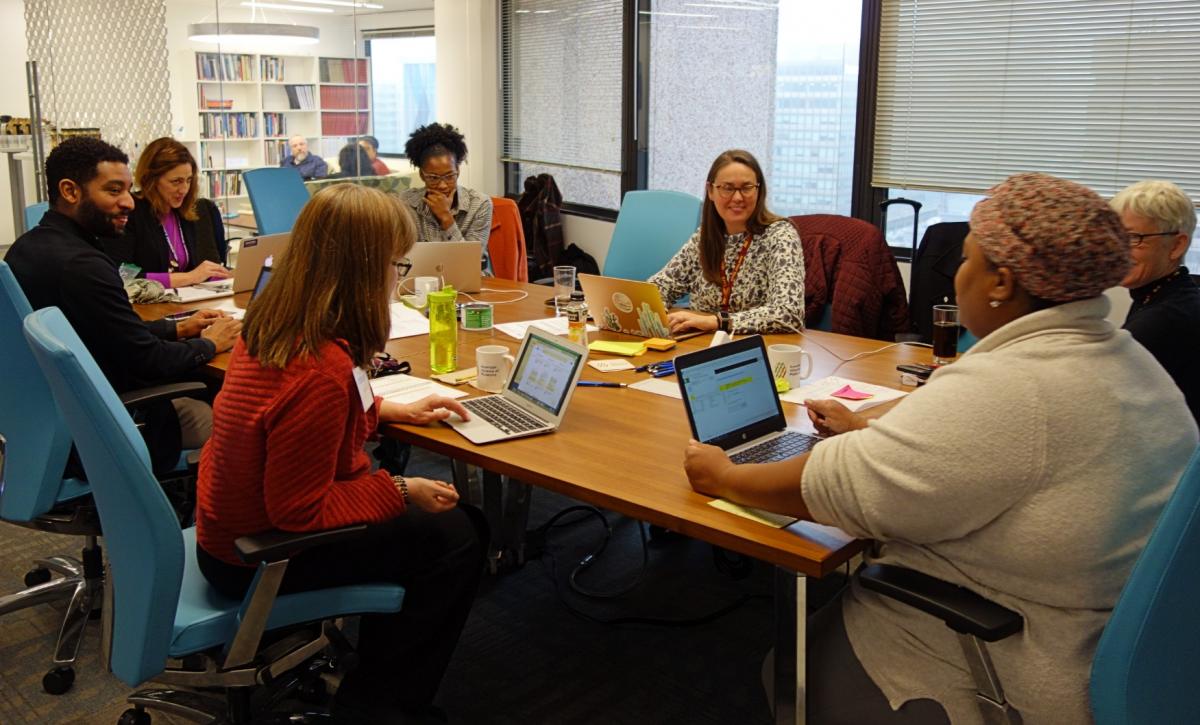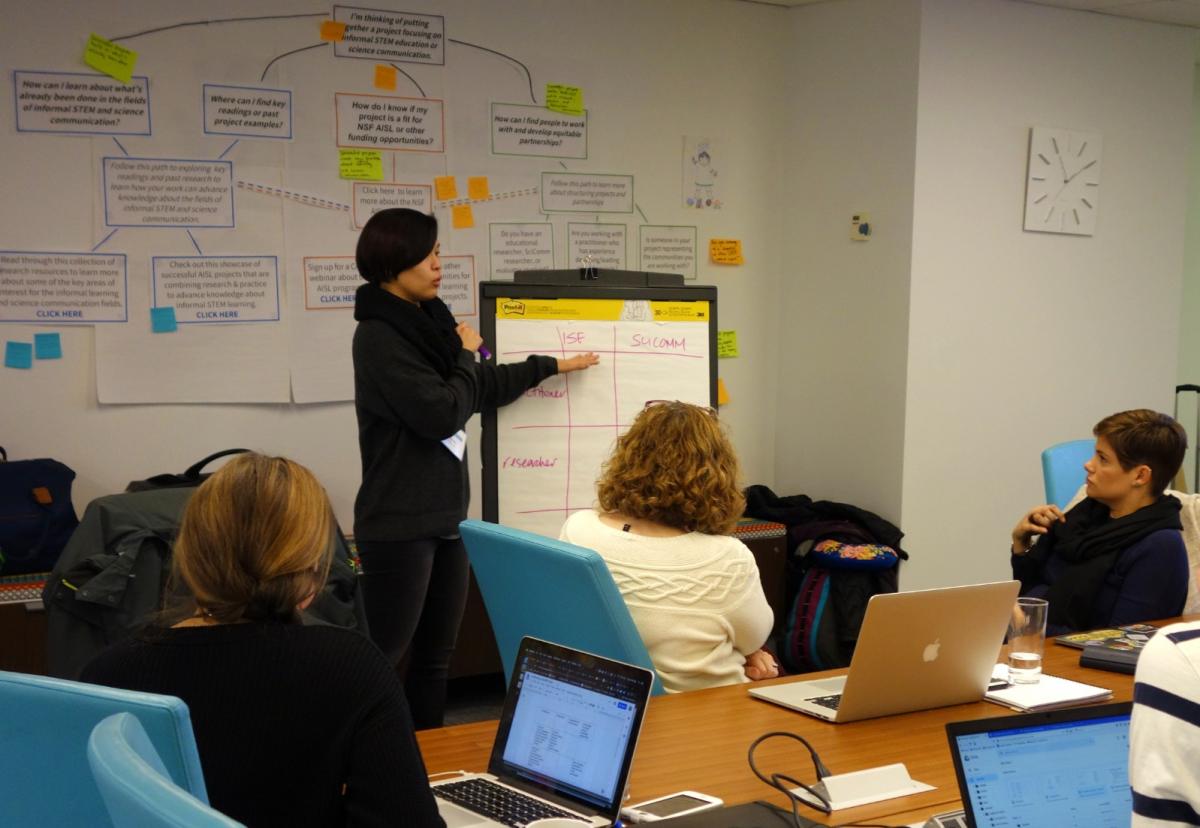Research & Practice Task Force: Reflections from the December 2019 Convening
This blog was co-written with Michelle Choi. Kevin Crowley is Professor, Learning Sciences and Policy, University of Pittsburgh, and CAISE co-Principal Investigator.
In December 2019, the Center for Advancement of Informal Science Education (CAISE) Research & Practice Task Force organized an in-person convening at the American Alliance of Museums headquarters in Washington, D.C., to compile resources into a Research & Practice toolkit. The convening included nine invited guests working at the intersection of research and practice in Informal STEM Education and Science Communication, as well as NSF program officers, to query and inform our thinking and contribute to the development of the toolkit.
| Dionne Champion | University of Florida |
| Vicki Coats | Oregon Museum of Science and Industry |
| Kirsten Ellenbogen | Great Lakes Science Center |
| Janice McDonnell | Rutgers University |
| Rae Ostman | NISE Network, Arizona State University |
| Karen Purcell | Cornell University |
| Wendy Smythe | University of Minnesota |
| Krystal Villanosa | Spencer Foundation |
| Darryl Williams | Franklin Institute |
The convening was informed by and built on prior initiatives. Since 2012, CAISE has been tracking and disseminating the results of practice and research efforts across informal STEM education. This has included work to develop research agendas, workshops and professional development resources to build equitable partnerships between researchers and practitioners at every level, and innovative approaches to using research in reflective practice and community perspectives on partnering, among other strategies.
In response to emerging parallel efforts in science communication, CAISE initiated a Research & Practice Task Force in 2018. The task force is comprised of 10 experts from across the fields of informal STEM education and science communication who share the goal of identifying new ways to support and sustain generative relationships across fields, roles, and realms. The task force members include researchers, practitioners, and scientists. Several consider themselves boundary-crossers whose professional identities link perspectives from each of these roles in their daily work.
After a series of virtual discussions and information gathering, the task force had the opportunity to gather additional, formative input as participants and facilitators at the 2019 AISL PI Meeting in February 2019. Throughout the rest of the year, the task force met monthly in smaller audience-focused working groups to collect, curate, and develop resources for ISE and SciComm practitioners, researchers, and scientists. Not wanting to re-create the wheel, the task force focused on documenting, leveraging, and linking to an array of existing resources, with an eye toward exploring what could be valuable contributions to the field from CAISE. The task force decided to focus on supporting the development of strong proposals for new research-practice collaborations that could be submitted to the NSF Advancing Informal STEM Learning (AISL) or other appropriate federal funding programs.

During the December convening, participants shared stories of current and past projects and partnerships, surfacing common challenges, questions, and tensions that arise while trying to form equitable relationships across research and practice. Some of these issues included attending to language, building capacity for boundary-spanners, addressing power dynamics, and ensuring the authentic inclusion of community partners and audiences throughout the life of projects.
At the conclusion of the two-day convening, participants converged on three categories of resources that could support researchers, practitioners, scientists, and community members working in ISE and SciComm to develop equitable and productive projects and partnerships:
- Leveraging Field Knowledge: Key readings and project examples to situate those who are new to this work and help them reflect on how their work can best acknowledge audiences’ assets and address their needs, while contributing to the knowledge base themselves
-
Finding Partners and Forming Partnerships: Strategies and resources for identifying collaborators and partners with whom to develop generative, impactful work
-
Funding Opportunities: Where to find funding opportunities for informal STEM learning and SciComm projects
These categories have formed the organizing structure for the forthcoming toolkit, which we continue to develop in anticipation for public launch this spring. If you have used resources that you found helpful in developing authentic, equitable research and practice collaborations, CAISE would love to consider them for inclusion in this resource. Please let us know at caise@informalscience.org.
